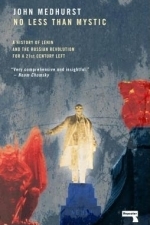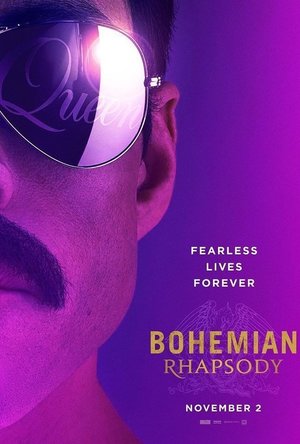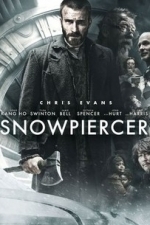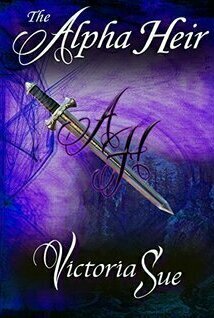Search
Search results

Battle Bay
Games
App
A real-time multiplayer battle arena in your pocket. Choose a ship, slap some guns on it and take to...
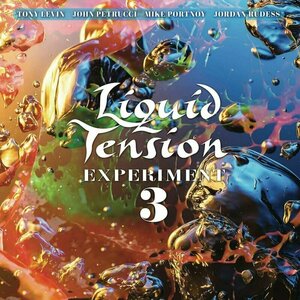
LTE3 by Liquid Tension Experiment
Album
In modern-day progressive rock, it seems as though there is a new supergroup every few weeks. But...
Hazel (1853 KP) rated No More Than Mystic in Books
Sep 23, 2017
Russian Revolution
I received this book for free through Goodreads First Reads.
No Less Than Mystic: A Story of Lenin and the Russian Revolution for a 21st Century Left by John Medhurst is an in-depth historical and political insight to the truth about what really happened in Russia before, during and after the Bolshevik insurrection of October 1917. Beginning with the end of the Tsars rule and ending with Stalinism, Medhurst unearths the fact from the fiction, challenging the information the world has been led to believe.
As mentioned in Medhurst lengthy introduction, previous books on the subject are often biased and inaccurate. Swayed by political beliefs, authors and historians often pass judgement by using the information they have chosen to believe, dismissing anything that goes against their viewpoint. In this book, Medhurst filters through these false histories, preferring to cite from publications written at the time rather than those penned by people who did not witness the events between 1903 and 1921.
Medhurst’s narrative is more political than historical, often going off on tangents. In order to for the reader to obtain some sort of connection with the events described, the author contrasts them with more recent occurrences that readers may have observed or at least understand. These include the British miner’s strike, feminist movements, the Greek economy and a variety of other capitalist struggles.
The Russian revolution is a complex affair that cannot easily be condensed. As a result, No More Than Mystic exceeds 600 pages and covers every event, no matter how big or small, that contributed to the rise of USSR. Russia was a dangerous place to live during the 20th century, particularly when Leninism spiralled into Stalinism. However, Leninism was not all the history books make it out to be.
During GCSE History, one teacher led his class to believe that Lenin was good and Stalin was bad, however, the reality was much more complicated than that. Lenin was not the good guy that many painted him to be. Thousands died as a result of his policies from both execution and starvation. Yet, at the same time, Medhurst tries to point out the reasoning behind the ideas of the communist rulers, refusing to give a personal opinion without laying bare both sides of the argument.
Although this book is accurate and educational, it is not the easiest to sit down and read. Extensive chapters full of mind-numbing information detract from the comprehensive insightfulness of the content. Notwithstanding the fact that the inclusion of contrasting capitalist examples helps the reader to establish some form of familiar ground, the sudden changes in topic, location and time period are often confusing and hard to follow.
No Less Than Mystic is for the intellectual person with a great interest in 20th-century Russian history and communist affairs. Without any prior education on the topic, this book will not mean anything. It attempts to challenge the ingrained beliefs people have about what happened during the Bolshevik insurrection. Those who do not know anything will not benefit from the confronting enlightenment.
In all, No Less Than Mystic is a well-researched academic text that brings a fresh history of Lenin and the Russian Revolution. Those who want an unbiased truth need to read this book and be sceptical about any other on the topic. In order to form opinions, one must know the facts.
No Less Than Mystic: A Story of Lenin and the Russian Revolution for a 21st Century Left by John Medhurst is an in-depth historical and political insight to the truth about what really happened in Russia before, during and after the Bolshevik insurrection of October 1917. Beginning with the end of the Tsars rule and ending with Stalinism, Medhurst unearths the fact from the fiction, challenging the information the world has been led to believe.
As mentioned in Medhurst lengthy introduction, previous books on the subject are often biased and inaccurate. Swayed by political beliefs, authors and historians often pass judgement by using the information they have chosen to believe, dismissing anything that goes against their viewpoint. In this book, Medhurst filters through these false histories, preferring to cite from publications written at the time rather than those penned by people who did not witness the events between 1903 and 1921.
Medhurst’s narrative is more political than historical, often going off on tangents. In order to for the reader to obtain some sort of connection with the events described, the author contrasts them with more recent occurrences that readers may have observed or at least understand. These include the British miner’s strike, feminist movements, the Greek economy and a variety of other capitalist struggles.
The Russian revolution is a complex affair that cannot easily be condensed. As a result, No More Than Mystic exceeds 600 pages and covers every event, no matter how big or small, that contributed to the rise of USSR. Russia was a dangerous place to live during the 20th century, particularly when Leninism spiralled into Stalinism. However, Leninism was not all the history books make it out to be.
During GCSE History, one teacher led his class to believe that Lenin was good and Stalin was bad, however, the reality was much more complicated than that. Lenin was not the good guy that many painted him to be. Thousands died as a result of his policies from both execution and starvation. Yet, at the same time, Medhurst tries to point out the reasoning behind the ideas of the communist rulers, refusing to give a personal opinion without laying bare both sides of the argument.
Although this book is accurate and educational, it is not the easiest to sit down and read. Extensive chapters full of mind-numbing information detract from the comprehensive insightfulness of the content. Notwithstanding the fact that the inclusion of contrasting capitalist examples helps the reader to establish some form of familiar ground, the sudden changes in topic, location and time period are often confusing and hard to follow.
No Less Than Mystic is for the intellectual person with a great interest in 20th-century Russian history and communist affairs. Without any prior education on the topic, this book will not mean anything. It attempts to challenge the ingrained beliefs people have about what happened during the Bolshevik insurrection. Those who do not know anything will not benefit from the confronting enlightenment.
In all, No Less Than Mystic is a well-researched academic text that brings a fresh history of Lenin and the Russian Revolution. Those who want an unbiased truth need to read this book and be sceptical about any other on the topic. In order to form opinions, one must know the facts.
Hazel (1853 KP) rated No More Than Mystic in Books
Dec 7, 2018
<i>I received this book for free through Goodreads First Reads.
No Less Than Mystic: A Story of Lenin and the Russian Revolution for a 21st Century Left</i> by John Medhurst is an in-depth historical and political insight to the truth about what really happened in Russia before, during and after the Bolshevik insurrection of October 1917. Beginning with the end of the Tsars rule and ending with Stalinism, Medhurst unearths the fact from the fiction, challenging the information the world has been led to believe.
As mentioned in Medhurst lengthy introduction, previous books on the subject are often biased and inaccurate. Swayed by political beliefs, authors and historians often pass judgement by using the information they have chosen to believe, dismissing anything that goes against their viewpoint. In this book, Medhurst filters through these false histories, preferring to cite from publications written at the time rather than those penned by people who did not witness the events between 1903 and 1921.
Medhurst’s narrative is more political than historical, often going off on tangents. In order to for the reader to obtain some sort of connection with the events described, the author contrasts them with more recent occurrences that readers may have observed or at least understand. These include the British miner’s strike, feminist movements, the Greek economy and a variety of other capitalist struggles.
The Russian revolution is a complex affair that cannot easily be condensed. As a result, <i>No More Than Mystic</i> exceeds 600 pages and covers every event, no matter how big or small, that contributed to the rise of USSR. Russia was a dangerous place to live during the 20th century, particularly when Leninism spiralled into Stalinism. However, Leninism was not all the history books make it out to be.
During GCSE History, one teacher led his class to believe that Lenin was good and Stalin was bad, however, the reality was much more complicated than that. Lenin was not the good guy that many painted him to be. Thousands died as a result of his policies from both execution and starvation. Yet, at the same time, Medhurst tries to point out the reasoning behind the ideas of the communist rulers, refusing to give a personal opinion without laying bare both sides of the argument.
Although this book is accurate and educational, it is not the easiest to sit down and read. Extensive chapters full of mind-numbing information detract from the comprehensive insightfulness of the content. Notwithstanding the fact that the inclusion of contrasting capitalist examples helps the reader to establish some form of familiar ground, the sudden changes in topic, location and time period are often confusing and hard to follow.
<i>No Less Than Mystic </i>is for the intellectual person with a great interest in 20th-century Russian history and communist affairs. Without any prior education on the topic, this book will not mean anything. It attempts to challenge the ingrained beliefs people have about what happened during the Bolshevik insurrection. Those who do not know anything will not benefit from the confronting enlightenment.
In all, <i>No Less Than Mystic</i> is a well-researched academic text that brings a fresh history of Lenin and the Russian Revolution. Those who want an unbiased truth need to read this book and be sceptical about any other on the topic. In order to form opinions, one must know the facts.
No Less Than Mystic: A Story of Lenin and the Russian Revolution for a 21st Century Left</i> by John Medhurst is an in-depth historical and political insight to the truth about what really happened in Russia before, during and after the Bolshevik insurrection of October 1917. Beginning with the end of the Tsars rule and ending with Stalinism, Medhurst unearths the fact from the fiction, challenging the information the world has been led to believe.
As mentioned in Medhurst lengthy introduction, previous books on the subject are often biased and inaccurate. Swayed by political beliefs, authors and historians often pass judgement by using the information they have chosen to believe, dismissing anything that goes against their viewpoint. In this book, Medhurst filters through these false histories, preferring to cite from publications written at the time rather than those penned by people who did not witness the events between 1903 and 1921.
Medhurst’s narrative is more political than historical, often going off on tangents. In order to for the reader to obtain some sort of connection with the events described, the author contrasts them with more recent occurrences that readers may have observed or at least understand. These include the British miner’s strike, feminist movements, the Greek economy and a variety of other capitalist struggles.
The Russian revolution is a complex affair that cannot easily be condensed. As a result, <i>No More Than Mystic</i> exceeds 600 pages and covers every event, no matter how big or small, that contributed to the rise of USSR. Russia was a dangerous place to live during the 20th century, particularly when Leninism spiralled into Stalinism. However, Leninism was not all the history books make it out to be.
During GCSE History, one teacher led his class to believe that Lenin was good and Stalin was bad, however, the reality was much more complicated than that. Lenin was not the good guy that many painted him to be. Thousands died as a result of his policies from both execution and starvation. Yet, at the same time, Medhurst tries to point out the reasoning behind the ideas of the communist rulers, refusing to give a personal opinion without laying bare both sides of the argument.
Although this book is accurate and educational, it is not the easiest to sit down and read. Extensive chapters full of mind-numbing information detract from the comprehensive insightfulness of the content. Notwithstanding the fact that the inclusion of contrasting capitalist examples helps the reader to establish some form of familiar ground, the sudden changes in topic, location and time period are often confusing and hard to follow.
<i>No Less Than Mystic </i>is for the intellectual person with a great interest in 20th-century Russian history and communist affairs. Without any prior education on the topic, this book will not mean anything. It attempts to challenge the ingrained beliefs people have about what happened during the Bolshevik insurrection. Those who do not know anything will not benefit from the confronting enlightenment.
In all, <i>No Less Than Mystic</i> is a well-researched academic text that brings a fresh history of Lenin and the Russian Revolution. Those who want an unbiased truth need to read this book and be sceptical about any other on the topic. In order to form opinions, one must know the facts.
Bob Mann (459 KP) rated Bohemian Rhapsody (2018) in Movies
Sep 28, 2021
“Fame and fortune and everything that goes with it”.
Sometimes a trailer generates a bit of a buzz of excitement with a cinema audience and the first showings of the trailer for “Bohemian Rhapsody” was a case in point. But would the film live up to the potential?
The Plot
Farrokh Bulsara (Rami Malek), born in Zanzibar to Indian parents, is a shy boy with a dramatic singing voice. At a concert he meets Mary (Lucy Boynton) who becomes the “love of his life”. When a space for a lead singer becomes available in a college band, Farrokh leaps at the chance and onstage becomes an exuberant extrovert. The band, of course, changes its name to Queen and with Farrokh assuming the name of Freddie Mercury they are set for global success. But Freddie is a complex character, and the demands and temptations of global super-stardom take a terrible toll.
The Review
Wow! What a great film on so many different levels. As a biopic of Mercury and a history of one of the greatest ever rock bands, the film is highly entertaining. But I wasn’t prepared for how emotional I would find it. Mercury’s life is befitting of a Shakespearian tragedy: an estrangement from his ‘conservative’ father (Ace Bhatti); a public extravert, but privately an insecure and needy bi-sexual, constantly searching for his perch in life; a meteoric rise and an equally spectacular and historic fall.
Do you remember where you were (if anywhere!) during the historic Live Aid concert at Wembley in July 1985? My eagle-minded wife had to remind me that we were travelling to Hampshire to house hunt because of my graduate job offer from IBM Hursley Park. My 3 month old daughter was rolling around, unstrapped, in a carry cot on the back seat: different times; different rules! Why this is relevant is that the film culminates in a recreation of the band’s spectacular 20 minute set for 1985’s Live Aid concert at Wembley. It’s a spectacular piece of cinema and one that – for me – puts the much hyped concert scenes from “A Star is Born” back in its box. Aside from a few niggles (the sound engineers in the booth were, if I’m not mistaken, all the size of Hagrid!) it’s a spectacular piece of CGI work.
It’s also worth remembering that whilst today’s massive stadium concerts from the likes of Adele and Coldplay are commonplace, back in the UK of 1985 most of the bands played in more traditional theatre venues: this really was an historic event on so many levels.
If I’m being critical, there are a few bits of the movie that are a tad tacky and twee. A whizz around the world of tour locations is composed of some pretty ropy animations that didn’t work for me. And a few of the ‘creations’ of classic songs – particularly “Another One Bites the Dust” – are a bit forced. Countering that though, the “Bohemian Rhapsody” is mesmerising.
The Turns
I’ll just put it right out there, Rami Malek is just sensational as Mercury! I first called out Malek as someone to watch in “Need For Speed“, but since then he’s gone on to major fame in the TV series “Mr Robot”. Here he is a force of nature on the screen and you literally can’t take your eyes off him. Every nuance of Mercury’s tortured soul is up there. I would love to see the performance recognized in the Awards season, with the showreel clip being a brilliant standoff in the rain with Paul Prenter (“Downton’s” Allen Leech).
The rest of the band – Ben Hardy as drummer Roger Taylor; Gwilym Lee as lead guitar Brian May; and Joseph Mazzello (yes, young Tim from “Jurassic Park”!) as bass guitarist John Deacon – all work well together, with Lee looking more like Brian May than Brian May!
Lucy Boynton, so great in “Sing Street“, gets a meaty dramatic role to sink her teeth into, and the ever-reliable Tom Hollander is great as the band’s legal rep/manager Jim “Miami” Beech: his ‘knowing looks’ near the end of the film are brilliantly done.
The surprise piece of casting though was the very welcome return of Mike Myers as the exec Ray Foster: only seen spasmodically on screen since 2009’s “Inglorious Basterds”. It’s a role that reminded me of Tom Cruise‘s turn in “Tropic Thunder”! But it’s well done. After making “Bohemian Rhapsody” famous again in “Wayne’s World”, how could he have refused? I say “Welcome back Mr Myers”: you’ve been missed.
And a final shout out to Paul Jones, my son-in-law’s brother, who gets a full screen appearance in the crowd, arms outstretched, during the “Fat Bottomed Girls” set! (I must admit, I missed it, so will have to go and see it again!)
Final Thoughts
This is a film that grabs you and propels you through the story at a fast lick. It’s a surprisingly moving story, with a well-known and tragic finale. It’s not a perfect film, but it is up there wih the year’s best as a high-energy cinema experience.
The Plot
Farrokh Bulsara (Rami Malek), born in Zanzibar to Indian parents, is a shy boy with a dramatic singing voice. At a concert he meets Mary (Lucy Boynton) who becomes the “love of his life”. When a space for a lead singer becomes available in a college band, Farrokh leaps at the chance and onstage becomes an exuberant extrovert. The band, of course, changes its name to Queen and with Farrokh assuming the name of Freddie Mercury they are set for global success. But Freddie is a complex character, and the demands and temptations of global super-stardom take a terrible toll.
The Review
Wow! What a great film on so many different levels. As a biopic of Mercury and a history of one of the greatest ever rock bands, the film is highly entertaining. But I wasn’t prepared for how emotional I would find it. Mercury’s life is befitting of a Shakespearian tragedy: an estrangement from his ‘conservative’ father (Ace Bhatti); a public extravert, but privately an insecure and needy bi-sexual, constantly searching for his perch in life; a meteoric rise and an equally spectacular and historic fall.
Do you remember where you were (if anywhere!) during the historic Live Aid concert at Wembley in July 1985? My eagle-minded wife had to remind me that we were travelling to Hampshire to house hunt because of my graduate job offer from IBM Hursley Park. My 3 month old daughter was rolling around, unstrapped, in a carry cot on the back seat: different times; different rules! Why this is relevant is that the film culminates in a recreation of the band’s spectacular 20 minute set for 1985’s Live Aid concert at Wembley. It’s a spectacular piece of cinema and one that – for me – puts the much hyped concert scenes from “A Star is Born” back in its box. Aside from a few niggles (the sound engineers in the booth were, if I’m not mistaken, all the size of Hagrid!) it’s a spectacular piece of CGI work.
It’s also worth remembering that whilst today’s massive stadium concerts from the likes of Adele and Coldplay are commonplace, back in the UK of 1985 most of the bands played in more traditional theatre venues: this really was an historic event on so many levels.
If I’m being critical, there are a few bits of the movie that are a tad tacky and twee. A whizz around the world of tour locations is composed of some pretty ropy animations that didn’t work for me. And a few of the ‘creations’ of classic songs – particularly “Another One Bites the Dust” – are a bit forced. Countering that though, the “Bohemian Rhapsody” is mesmerising.
The Turns
I’ll just put it right out there, Rami Malek is just sensational as Mercury! I first called out Malek as someone to watch in “Need For Speed“, but since then he’s gone on to major fame in the TV series “Mr Robot”. Here he is a force of nature on the screen and you literally can’t take your eyes off him. Every nuance of Mercury’s tortured soul is up there. I would love to see the performance recognized in the Awards season, with the showreel clip being a brilliant standoff in the rain with Paul Prenter (“Downton’s” Allen Leech).
The rest of the band – Ben Hardy as drummer Roger Taylor; Gwilym Lee as lead guitar Brian May; and Joseph Mazzello (yes, young Tim from “Jurassic Park”!) as bass guitarist John Deacon – all work well together, with Lee looking more like Brian May than Brian May!
Lucy Boynton, so great in “Sing Street“, gets a meaty dramatic role to sink her teeth into, and the ever-reliable Tom Hollander is great as the band’s legal rep/manager Jim “Miami” Beech: his ‘knowing looks’ near the end of the film are brilliantly done.
The surprise piece of casting though was the very welcome return of Mike Myers as the exec Ray Foster: only seen spasmodically on screen since 2009’s “Inglorious Basterds”. It’s a role that reminded me of Tom Cruise‘s turn in “Tropic Thunder”! But it’s well done. After making “Bohemian Rhapsody” famous again in “Wayne’s World”, how could he have refused? I say “Welcome back Mr Myers”: you’ve been missed.
And a final shout out to Paul Jones, my son-in-law’s brother, who gets a full screen appearance in the crowd, arms outstretched, during the “Fat Bottomed Girls” set! (I must admit, I missed it, so will have to go and see it again!)
Final Thoughts
This is a film that grabs you and propels you through the story at a fast lick. It’s a surprisingly moving story, with a well-known and tragic finale. It’s not a perfect film, but it is up there wih the year’s best as a high-energy cinema experience.
Emma @ The Movies (1786 KP) rated Snowpiercer (2013) in Movies
Jun 7, 2020
You know when someone tells you you should watch something... and then someone else does... and after every new "oh my god, you haven't seen it?!" you become more stubborn about watching it? That's exactly why it has taken me so long to watch Snowpiercer.
With the world on the edge of a complete climate collapse scientists launched what they hoped was the solution to the crisis, they would cool the atmosphere and save everyone... but their solution proved to be the world's undoing. What's left of the human race now rides a purpose-built train outrunning an icy end. The people of the tail section are living a terrible life, no natural light, barely any food... they want things to change, but the rest of the train has other ideas.
There's an all star cast on board for Snowpiercer, they've definitely not scrimped in that department. Together everyone works, even with some strong character personalities.
Chris Evans plays our lead, Curtis. Evans can do a lot of different genres but this sort of science fiction didn't seem to suit him. Curtis is a flawed character by design but at no point did he feel like someone to get behind, it's possible to like a flawed leader but this one didn't have the strength to make it convincing.
Tilda Swinton pops up and gives us the much expected slightly nuts performance that only she could muster. While I enjoyed it I'm not sure what it added to the proceedings apart from a very over the top sci-fi edge.
In the confined spaces of the train you get a great sense of how they're living and the cameras are placed in such a way that it never feels claustrophobic. Even in the tail section where you'd expect that, the closeness boosts the bond between characters and the way their planning comes together.
The film has a very clear divide when it comes to life both inside and out of the train. The sweeping bright white landscape with the dark and vibrant interiors, the dull tones of the tail to the richness of the ticketed sections. There's a lot to see in all of it and I'm certainly keen to give it another watch to try and pick out more details from inside the train and what's hidden in the snow... though I have some issues believing that some of that stuff would have still been visible with the wind and weather... but anyway.
There's some movie "magic" that I have a problem with in Snowpiercer, specifically a shoot-out scene that I actively dislike because it's ridiculous. I happily suspend my logical thinking for so many things but this scene annoyed me a lot, there were so many alternative ways to do it that would have been believable... ugh... *deep breath*. I'm going to stop on that now to avoid ranting and spoilers.
It's a great idea and the original story from the graphic novel is an excellent piece to work off, and while the adaptation might not be faithful to that it does add something that's necessary for a single film format. Because of the story and the design of the set there's automatically a natural progression to everything but the film isn't entirely balanced. The beginning feels very heavy and drawn out then we get a sprint for the finish. There's a lot of opportunity for expanded story in the middle but it's not taken up, including it may have changed the tone of the film as it definitely wasn't in keeping with the rest but it would have been interesting to find out more about it. (This is one thing I'm hoping we get to see a bit more of in the TV show.)
Originally posted on: https://emmaatthemovies.blogspot.com/2020/06/snowpiercer-movie-review.html
With the world on the edge of a complete climate collapse scientists launched what they hoped was the solution to the crisis, they would cool the atmosphere and save everyone... but their solution proved to be the world's undoing. What's left of the human race now rides a purpose-built train outrunning an icy end. The people of the tail section are living a terrible life, no natural light, barely any food... they want things to change, but the rest of the train has other ideas.
There's an all star cast on board for Snowpiercer, they've definitely not scrimped in that department. Together everyone works, even with some strong character personalities.
Chris Evans plays our lead, Curtis. Evans can do a lot of different genres but this sort of science fiction didn't seem to suit him. Curtis is a flawed character by design but at no point did he feel like someone to get behind, it's possible to like a flawed leader but this one didn't have the strength to make it convincing.
Tilda Swinton pops up and gives us the much expected slightly nuts performance that only she could muster. While I enjoyed it I'm not sure what it added to the proceedings apart from a very over the top sci-fi edge.
In the confined spaces of the train you get a great sense of how they're living and the cameras are placed in such a way that it never feels claustrophobic. Even in the tail section where you'd expect that, the closeness boosts the bond between characters and the way their planning comes together.
The film has a very clear divide when it comes to life both inside and out of the train. The sweeping bright white landscape with the dark and vibrant interiors, the dull tones of the tail to the richness of the ticketed sections. There's a lot to see in all of it and I'm certainly keen to give it another watch to try and pick out more details from inside the train and what's hidden in the snow... though I have some issues believing that some of that stuff would have still been visible with the wind and weather... but anyway.
There's some movie "magic" that I have a problem with in Snowpiercer, specifically a shoot-out scene that I actively dislike because it's ridiculous. I happily suspend my logical thinking for so many things but this scene annoyed me a lot, there were so many alternative ways to do it that would have been believable... ugh... *deep breath*. I'm going to stop on that now to avoid ranting and spoilers.
It's a great idea and the original story from the graphic novel is an excellent piece to work off, and while the adaptation might not be faithful to that it does add something that's necessary for a single film format. Because of the story and the design of the set there's automatically a natural progression to everything but the film isn't entirely balanced. The beginning feels very heavy and drawn out then we get a sprint for the finish. There's a lot of opportunity for expanded story in the middle but it's not taken up, including it may have changed the tone of the film as it definitely wasn't in keeping with the rest but it would have been interesting to find out more about it. (This is one thing I'm hoping we get to see a bit more of in the TV show.)
Originally posted on: https://emmaatthemovies.blogspot.com/2020/06/snowpiercer-movie-review.html

Mysterious Stone
Games
App
Mysterious stones is a challenging game where you combine three or more of same kind of stone to...

Kids Lullabies & Cradle Songs for Baby Sleep
Catalogs and Music
App
Wish your baby goodnight with the most famous traditional lullabies ever created. With Kids...
Heather Cranmer (2721 KP) rated Savage in Books
Jun 7, 2018
(This review can be found on my blog <a href="http://themisadventuresofatwentysomething.blogspot.com/">The (Mis)Adventures of a Twenty-Something Year Old Girl</a>).
When I read the blurb for this novella, I was a little bit interested especially when it came to the mysterious village. The whole creature thing isn't usually what I read when it comes to the horror genre, but as this was a short read, I thought I'd give it a try. However, it wasn't something I can say I enjoyed.
I don't really like or dislike the title. It's a bit plain and boring, and I don't really see what it has to do with the book unless it pertains to what the villagers call the undisciplined. No mention of the word savage was ever used.
The cover of this book reminds me of a book from the time of Alfred Hitchcock. I believe that the cover does suit the book.
The world building starts off being believable. It was quite easy to picture a man driving along a country road, his car dying, and then he mysteriously gets transported to a strange village. However, the author starts talking about angles and shapes, and I just found myself being really confused. I wouldn't say this made the world building any less believable but just confusing, at least for me.
I thought the pacing to be a bit too slow for my liking. There's not really any action until almost the very end of the book. Luckily this book is short or else I would've quit reading it before I was finished.
The plot is interesting enough. A man's car breaks down just outside some strange village. The man goes into the village and notices how perfectly angular the people and the landscape is. The villagers start talking about the undisciplined. The man ends up getting locked up but manages to escape. However, he runs into something a lot worse than the strange villagers. So yes, the plot line was interesting enough, but I just felt it was executed a bit poorly. I felt as if the ending didn't tie in with the whole book. I don't want to give away any spoilers, but I will say that if the author was going for that ending, maybe he should've rethought about whether or not to have a mysterious village in the book as the village and the ending don't really mesh well.
I did like Daryl. He seemed like your everyday, normal working man. However, I think he was a bit too intellectual for me to fully relate to. As for the villagers, I can't really comment on them because I felt like there wasn't enough back story on the village and its people to fully form an opinion. I would've liked more back story on the village, and I feel that with more back story, the book would've been less confusing and more interesting.
There wasn't much dialogue in the book which I found disappointing. It seemed like all that was in the book was adjectives and too much description for my liking. Not only that, but I felt that the words used were too intellectual for a common reader such as myself. A lot of the time I didn't even know what the words meant, and this lead to a lot of confusion and lack of interest for me. It's just too wordy of a book if that makes sense. There are a few swear words and a tiny bit of violence. There is also a little bit of sexual references but only in one or two scenes, and it's not very graphic.
Overall, Savage by Gary Fry has a promising story line, but with all the big words, too much description and not enough dialogue, it just falls flat. It doesn't help that the mysterious village has no back story and that the ending doesn't really mesh with the rest of the story.
Personally, I wouldn't recommend this book unless you know words that aren't used in every day conversations or if you're an English major. I'd say this book is written for those 18+.
<b>I'd give Savage by Gary Fry a 2 out of 5.</b>
(I received a free ecopy of this book from the publisher through Netgalley for an honest and unbiased review).
When I read the blurb for this novella, I was a little bit interested especially when it came to the mysterious village. The whole creature thing isn't usually what I read when it comes to the horror genre, but as this was a short read, I thought I'd give it a try. However, it wasn't something I can say I enjoyed.
I don't really like or dislike the title. It's a bit plain and boring, and I don't really see what it has to do with the book unless it pertains to what the villagers call the undisciplined. No mention of the word savage was ever used.
The cover of this book reminds me of a book from the time of Alfred Hitchcock. I believe that the cover does suit the book.
The world building starts off being believable. It was quite easy to picture a man driving along a country road, his car dying, and then he mysteriously gets transported to a strange village. However, the author starts talking about angles and shapes, and I just found myself being really confused. I wouldn't say this made the world building any less believable but just confusing, at least for me.
I thought the pacing to be a bit too slow for my liking. There's not really any action until almost the very end of the book. Luckily this book is short or else I would've quit reading it before I was finished.
The plot is interesting enough. A man's car breaks down just outside some strange village. The man goes into the village and notices how perfectly angular the people and the landscape is. The villagers start talking about the undisciplined. The man ends up getting locked up but manages to escape. However, he runs into something a lot worse than the strange villagers. So yes, the plot line was interesting enough, but I just felt it was executed a bit poorly. I felt as if the ending didn't tie in with the whole book. I don't want to give away any spoilers, but I will say that if the author was going for that ending, maybe he should've rethought about whether or not to have a mysterious village in the book as the village and the ending don't really mesh well.
I did like Daryl. He seemed like your everyday, normal working man. However, I think he was a bit too intellectual for me to fully relate to. As for the villagers, I can't really comment on them because I felt like there wasn't enough back story on the village and its people to fully form an opinion. I would've liked more back story on the village, and I feel that with more back story, the book would've been less confusing and more interesting.
There wasn't much dialogue in the book which I found disappointing. It seemed like all that was in the book was adjectives and too much description for my liking. Not only that, but I felt that the words used were too intellectual for a common reader such as myself. A lot of the time I didn't even know what the words meant, and this lead to a lot of confusion and lack of interest for me. It's just too wordy of a book if that makes sense. There are a few swear words and a tiny bit of violence. There is also a little bit of sexual references but only in one or two scenes, and it's not very graphic.
Overall, Savage by Gary Fry has a promising story line, but with all the big words, too much description and not enough dialogue, it just falls flat. It doesn't help that the mysterious village has no back story and that the ending doesn't really mesh with the rest of the story.
Personally, I wouldn't recommend this book unless you know words that aren't used in every day conversations or if you're an English major. I'd say this book is written for those 18+.
<b>I'd give Savage by Gary Fry a 2 out of 5.</b>
(I received a free ecopy of this book from the publisher through Netgalley for an honest and unbiased review).
Debbiereadsbook (1664 KP) rated The Alpha Heir (Kingdom of Askara #2) in Books
Feb 2, 2020
Stunning follow up to book one!
*Audible purchase, Jan 2020*
This is book two in the series, and you don't NEED to have read/listened to book one, The Alpha King, but personally I would recommend you do. It will give you a better picture of this world, how things currently work, and how things begin to change.
Caleb has been kept away from everything and everyone but humans and his tormentors for 6 years. Faced with his death at the hands of the leader of the human rebels seems a fitting end to his miserable exsistence. Taegan, however, when realising WHO Caleb is to the current Alpha, doesn't kill him, but takes him captive as a ransom for the missing children. There follows a huge learning curve for both Caleb and Taegan, and when they realise what the children were taken for, Caleb knows he must give himself up to save them. Taegan isn't too keen on that idea, especially since Caleb has stolen his heart.
While The Alpha King was a stunning 5 star listen, I think THIS one is my favourite of the two. But then again, I have The Alpha Prince on my list to be listened to, so I might change my mind again!
Caleb and Taegan's relationship grows, at a steady rate through the book, and I loved how that sort of developed for both of them. There wasn't really that *MINE* moment you get with wolves, and I loved that. Well CALEB (being the wolf) doesn't get it, but Taegan has a dawning realisation early on that there may be something between them, but being human he can't voice it. It takes another, much older wolf, to explain to Taegan what is happening and what it means. I loved that part that Silas (Cyrus? maybe, sorry, I listened and I wasn't quite sure!) played in the whole book, and they way things played out for Taegan and him.
While there is some talk of the new Alpha King, Luca only pops up right near the end, and so does his best friend, Sam. But it's really a brief visit, just enough for Caleb to thoroughly and amusingly embarass himself! It will be interesting to see who pops up in the next book.
Joel Leslie continues to narrate and apart from Silas/Cyrus thing, I LOVED the narration again. It's my only comment, really, and that's not really Leslie's fault, it's just my shitty hearing!
The voices for each character are SPOT on though! When you start the listen to the descriptions of the characters, as they start to tell their story, you build a picture, and then Leslie puts a voice to them, and it blows your picture out the window, because Leslie's voices for Caleb and Taegan fit so much better than the ones I originally heard!
I had no trouble with the emotions these men gave out, and no trouble with the multi person conversations. I loved that Leslie is able to allow me to enjoy listening to books, even as my hearing gets worse. There are few who can, to be honest, keep my fully, totally and utterly engaged. Of course, Leslie reading the words of Victoria Sue help a great deal!
I look forward to listening to book 3, The Alpha Prince, which is next up on my list.
5 stars for the book
5 stars for the narration
**same worded review will appear elsewhere**
This is book two in the series, and you don't NEED to have read/listened to book one, The Alpha King, but personally I would recommend you do. It will give you a better picture of this world, how things currently work, and how things begin to change.
Caleb has been kept away from everything and everyone but humans and his tormentors for 6 years. Faced with his death at the hands of the leader of the human rebels seems a fitting end to his miserable exsistence. Taegan, however, when realising WHO Caleb is to the current Alpha, doesn't kill him, but takes him captive as a ransom for the missing children. There follows a huge learning curve for both Caleb and Taegan, and when they realise what the children were taken for, Caleb knows he must give himself up to save them. Taegan isn't too keen on that idea, especially since Caleb has stolen his heart.
While The Alpha King was a stunning 5 star listen, I think THIS one is my favourite of the two. But then again, I have The Alpha Prince on my list to be listened to, so I might change my mind again!
Caleb and Taegan's relationship grows, at a steady rate through the book, and I loved how that sort of developed for both of them. There wasn't really that *MINE* moment you get with wolves, and I loved that. Well CALEB (being the wolf) doesn't get it, but Taegan has a dawning realisation early on that there may be something between them, but being human he can't voice it. It takes another, much older wolf, to explain to Taegan what is happening and what it means. I loved that part that Silas (Cyrus? maybe, sorry, I listened and I wasn't quite sure!) played in the whole book, and they way things played out for Taegan and him.
While there is some talk of the new Alpha King, Luca only pops up right near the end, and so does his best friend, Sam. But it's really a brief visit, just enough for Caleb to thoroughly and amusingly embarass himself! It will be interesting to see who pops up in the next book.
Joel Leslie continues to narrate and apart from Silas/Cyrus thing, I LOVED the narration again. It's my only comment, really, and that's not really Leslie's fault, it's just my shitty hearing!
The voices for each character are SPOT on though! When you start the listen to the descriptions of the characters, as they start to tell their story, you build a picture, and then Leslie puts a voice to them, and it blows your picture out the window, because Leslie's voices for Caleb and Taegan fit so much better than the ones I originally heard!
I had no trouble with the emotions these men gave out, and no trouble with the multi person conversations. I loved that Leslie is able to allow me to enjoy listening to books, even as my hearing gets worse. There are few who can, to be honest, keep my fully, totally and utterly engaged. Of course, Leslie reading the words of Victoria Sue help a great deal!
I look forward to listening to book 3, The Alpha Prince, which is next up on my list.
5 stars for the book
5 stars for the narration
**same worded review will appear elsewhere**
